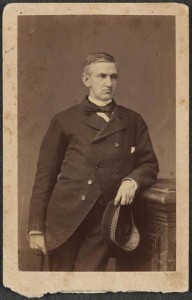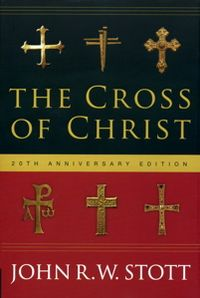 (1) ‘180’ is a wake up call to all Christians in America: Its become something of a vastly overused and worn out cliche to say that something is “life changing”, but if there ever was a movie made which could lay claim to such a term, surely this is it.
(1) ‘180’ is a wake up call to all Christians in America: Its become something of a vastly overused and worn out cliche to say that something is “life changing”, but if there ever was a movie made which could lay claim to such a term, surely this is it.
Its now been seen by more than 300,000 people just on youtube since it was released this week. Lets spread the word far and wide about this powerful movie and get it into the hands of as many people as we can. May God bless and strengthen Ray Comfort and all involved in this amazing project.
For more information or to order “180” on DVD, please go to this link.
Here’s one person’s outreach. He says, “Giving away 180 is easy, all you need are some DVDs and a servant’s heart.”
(2) This coming Tuesday (October 4) from 1:00pm to 3:30pm MST (appx), Dr. James White will conduct an online course in Christology for Christians: A Study of the History and Theology of the Person of Christ. James writes:
On Tuesday beginning at 1pm MST we will have the equivalent of a seminary level class on Christology on The Dividing Line. Christology should be a fundamental area of study of any serious believer, yet it is often an area of profound ignorance amongst many who name the name of Christ. We would like to help our listeners to have a much better grasp of this vital area. So, we will do at least two full hours of lecture on this topic, with a brief break halfway through the lecture.
To prepare for this, James has suggested some online reading material. Full details here.
(3) Once again, Ligonier has some SUPER deals today in this week’s $5 Friday sale. The online sale starts at 8 a.m. EST and goes on for 24 hours or until items are sold out. Check out the $5 Ligonier sale here.
(4) Dane Ortlund has come up with an innovative literary device, writing about an imaginary interview he would have with Jonathan Edwards, basing the answers on Edwards’ own writings and sermons:
A few questions on the Christian life. (I requested one to two word answers only).
Jon, what ignites the Christian life? How does it all get started?
JE: New birth.
 Having begun, what then is the essence of the Christian life? What’s the heart and soul of Christian living? What is most definitive of it?
Having begun, what then is the essence of the Christian life? What’s the heart and soul of Christian living? What is most definitive of it?
JE: Love.
What is the fuel for the Christian life? How do we keep loving? What’s the non-negotiable of all non-negotiables that will keep us going?
JE: Joy.
Where do I go to get this joy? How can I find it? What, concretely, sustains it, through all the ups and downs of life?
JE: The Bible.
But as I go to the Bible, what do I do with it as I read? How do I own it, make it mine, turn it into this joy-fueled love?
JE: Prayer.
What then is the overall flavor of the Christian life? How would you describe the aroma, the feel, of following Christ?
JE: Pilgrimage.
If joy, Bible, prayer, and all the rest go in, all under the flavor of pilgrimage, what comes out? What is the result of Christian life?
JE: Obedience.
Broadening out our scope, then, how do we make sense of the all this in a macro way? What is the context for the Christian life?
JE: Redemptive history.
What then, finally, does all this funnel into? What, above all else, is the hope of the Christian life?
JE: Heaven.
(5) An important quote to add to last week’s article concerning justification in the early Church Fathers (by Nathan Busenitz):
Chrysostom (349-407): What does he mean when he says: “I have declared your justice?” He did not simply say: “I have given,” but “I have declared.” What does this mean? That he has justified our race not by right actions, not by toils, not by barter and exchange, but by grace alone. Paul, too, made this clear when he said: “But now the justice of God has been made manifest independently of the Law.” But the justice of God comes through faith in Jesus Christ and not through any labor and suffering.
Greek text: ?? ???? ?????, ????????????? ???????????? ??? ????? ?????, ?????, ???’, ?????????????. ?? ??????? ??? ??? ??? ????????????, ???? ?????, ???? ???????, ???? ??? ??????? ????? ?? ????? ????????? ?? ????????. ???? ??? ??? ? ?????? ????? ?????? ???? ?? ????? ????? ?????????? ???? ???????????? ?????????? ?? ???? ??? ??????? ????? ???????, ?? ??? ??????? ????? ??? ?????.
Adversus Judaeos, VII, §3, PG 48:919; translation in Fathers of the Church, Vol. 68, Discourses Against Judaizing Christians, Disc. 7.3.2 (Washington, D.C.: The Catholic University of America Press, 1979), pp. 186-187.

 Continued from if we look at the word “authority,” the first six letters spell the word “author.”
Continued from if we look at the word “authority,” the first six letters spell the word “author.” Horatio Spafford was a lawyer of some prominence in Chicago. He and his wife Anna had one son and four daughters, and were good friends of D.L. Moody and Ira Sankey for many years. Mr. Spafford’s children had come to Christ through the influence of Ira Sankey’s music and efforts with the children of Chicago. Shortly before the Great Chicago Fire of October 8th, 1871, the Spafford’s son died and the family went into deep mourning.
Horatio Spafford was a lawyer of some prominence in Chicago. He and his wife Anna had one son and four daughters, and were good friends of D.L. Moody and Ira Sankey for many years. Mr. Spafford’s children had come to Christ through the influence of Ira Sankey’s music and efforts with the children of Chicago. Shortly before the Great Chicago Fire of October 8th, 1871, the Spafford’s son died and the family went into deep mourning. “During the period when lotteries were unhappily allowed to flourish in this country, a gentleman, looking into the window of a lottery office in St. Paul’s Churchyard, discovered to his joy that his ticket had turned up a 10,000 pound prize. Intoxicated with this sudden accession of wealth, he walked round the churchyard, to consider calmly how he should dispose of his fortune. On again, in his circuit, passing the lottery office, he resolved to take another glance at the charming announcement in the window, when, to his dismay, he saw that a new number had been substituted. On inquiry, he found that a wrong number had at first been posted by mistake, and that after all he was not the holder of the prize. His chagrin was now as great as his previous pleasure had been.” — W. Haig Miller’s “Life’s Pleasure Garden”
“During the period when lotteries were unhappily allowed to flourish in this country, a gentleman, looking into the window of a lottery office in St. Paul’s Churchyard, discovered to his joy that his ticket had turned up a 10,000 pound prize. Intoxicated with this sudden accession of wealth, he walked round the churchyard, to consider calmly how he should dispose of his fortune. On again, in his circuit, passing the lottery office, he resolved to take another glance at the charming announcement in the window, when, to his dismay, he saw that a new number had been substituted. On inquiry, he found that a wrong number had at first been posted by mistake, and that after all he was not the holder of the prize. His chagrin was now as great as his previous pleasure had been.” — W. Haig Miller’s “Life’s Pleasure Garden” For the past several weeks, Tim Challies has been encouraging visitors to his
For the past several weeks, Tim Challies has been encouraging visitors to his  Dr. David Murray, president of HeadHeartHand, is the Professor of Old Testament and Practical Theology at Puritan Reformed Theological Seminary. He lives in Grand Rapids with his wife, Shona, and four children.
Dr. David Murray, president of HeadHeartHand, is the Professor of Old Testament and Practical Theology at Puritan Reformed Theological Seminary. He lives in Grand Rapids with his wife, Shona, and four children. Dan Phillips is known for his writing on the Pyromaniacs blog and has served as a teacher, pastor, seminar speaker, newspaper columnist and radio talk show host. I have often enjoyed his fresh insights into the Scriptures, the fruit of his firm grasp of the original languages.
Dan Phillips is known for his writing on the Pyromaniacs blog and has served as a teacher, pastor, seminar speaker, newspaper columnist and radio talk show host. I have often enjoyed his fresh insights into the Scriptures, the fruit of his firm grasp of the original languages. Continued from Part 1 “is God’s authority invested in a book or in an Institution (the Church)?”
Continued from Part 1 “is God’s authority invested in a book or in an Institution (the Church)?” by Dr. Michael Horton at Dr. Laura Schlesinger, an Orthodox Jew, said that homosexuality is an abomination according to Leviticus 18:22, and cannot be condoned under any circumstance. The following response is an open letter to Dr. Laura, which was posted on the Internet. It creates a great opportunity to talk about how we interpret the Bible (especially the Old Testament). We need to have good answers—better than Dr. Laura would have—to the frequent criticism that if we’re going to follow Leviticus on one thing (like the vileness of homosexuality), we have to take the rest (such as stoning homosexuals and rebellious children—not to mention, the ban on pork, etc., and holy war in defense of a holy nation).
by Dr. Michael Horton at Dr. Laura Schlesinger, an Orthodox Jew, said that homosexuality is an abomination according to Leviticus 18:22, and cannot be condoned under any circumstance. The following response is an open letter to Dr. Laura, which was posted on the Internet. It creates a great opportunity to talk about how we interpret the Bible (especially the Old Testament). We need to have good answers—better than Dr. Laura would have—to the frequent criticism that if we’re going to follow Leviticus on one thing (like the vileness of homosexuality), we have to take the rest (such as stoning homosexuals and rebellious children—not to mention, the ban on pork, etc., and holy war in defense of a holy nation).